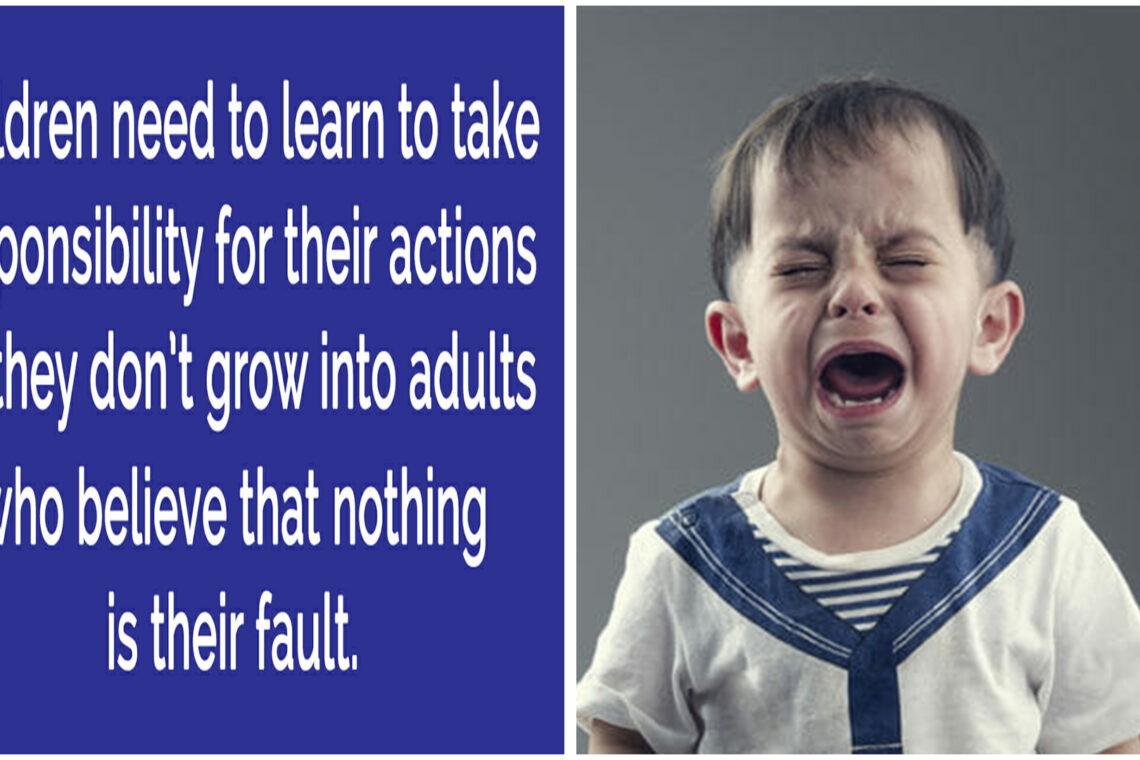
As we progress through life, we gradually recognize an essential truth: every action we take carries consequences. This understanding becomes increasingly evident as we mature. Essentially, every choice we make sends out ripples that can affect ourselves and those around us in various ways. Coming to terms with this reality is crucial, and the sooner we grasp it, the better it will be for our personal development and our interactions with others.
This concept is especially relevant when it comes to the upbringing of our children. Many parents can relate to the occasional indulgence of their kids, whether it’s treating them to a new toy or allowing them a little extra screen time. These moments of generosity aren’t inherently wrong; in fact, they often help reinforce the feelings of love and security that parents strive to nurture in their children.
However, there is a critical distinction between occasionally fulfilling a child’s desires and giving them a pass when they engage in inappropriate behavior or make irresponsible choices. Disciplining a child can be challenging, as it often requires acknowledging that they have acted incorrectly. Yet, this process is essential for their development. Neglecting to impose any form of discipline can lead to significant issues later in life.

It’s vital for children to understand when their actions have crossed a line. Imposing consequences or corrective measures serves to underline this lesson, making it clear that negative behavior leads to negative outcomes. If we fail to teach this important life skill, we may inadvertently foster a mindset that will not serve them well as they mature or interact with society.
Inevitably, there will come a time when children must be held accountable for their actions. If they haven’t previously encountered any consequences, they may struggle to navigate these situations effectively. This lack of preparation can lead to feelings of frustration and helplessness when faced with real-world challenges.
Although the principle seems straightforward, many children grow up with a sense of entitlement due to never having been required to take responsibility for their actions. This can lead to a host of behavioral problems, making it crucial for parents to take an active role in guiding their children toward understanding accountability.
So, how can parents foster a sense of responsibility in their children? One effective approach is to assign age-appropriate tasks and responsibilities. Household chores can provide children with a sense of duty and a foundational experience of responsibility. Simple tasks such as putting away toys, making their bed, or tidying up their room can easily be grasped by younger children, while older kids can take on more complex duties like taking out the trash, washing dishes, or caring for pets.

When children neglect their responsibilities or fail to complete their assigned tasks, parents can address these issues through gentle reminders or appropriate consequences. The goal is not to create an environment of fear or punishment but rather to help children understand that they are part of a larger family unit. They should recognize that their actions impact those around them, and that being part of a team means everyone has a role to play.
Providing assistance when needed is also crucial. Children should never feel overwhelmed or as though they are bearing the burden alone. Instead, they should perceive their chores as collaborative efforts that contribute to the well-being of the entire family. This sense of teamwork fosters a positive environment where everyone works together toward common goals.
As children mature, it’s essential for parents to gradually increase the level of responsibility they assign. This progression not only helps children build confidence but also prepares them for the responsibilities they will face in adulthood. By encouraging their kids to take ownership of their tasks and duties, parents lay the groundwork for a strong sense of accountability.
Moreover, parents play a pivotal role in shaping the next generation. By equipping their children with the understanding that actions have consequences, they contribute to a future where individuals are more likely to make thoughtful choices. In a world that often feels chaotic and unpredictable, instilling these values can be a significant step toward fostering a generation that understands the importance of responsibility and accountability.

Ultimately, teaching children about the ripple effects of their actions can pave the way for a more considerate and responsible society. When children learn to connect their choices with outcomes, they become more thoughtful individuals who recognize the impact of their behavior on others. This awareness not only benefits their personal relationships but also contributes to a more harmonious community.
It is essential for parents to advocate for their children’s understanding of responsibility and the consequences that accompany their actions. By providing them with the tools they need to navigate the complexities of life, parents can help their children grow into adults who are capable of making informed decisions. These skills will serve them throughout their lives, guiding them as they face various challenges and navigate the complexities of adulthood.
In conclusion, fostering a sense of accountability in children is one of the most significant responsibilities parents undertake. By teaching them that every action has a consequence, parents equip their children with valuable life lessons that will aid them in navigating both personal and societal challenges. Through age-appropriate responsibilities, open communication, and a supportive environment, parents can help their children develop into responsible and thoughtful adults who contribute positively to the world around them.